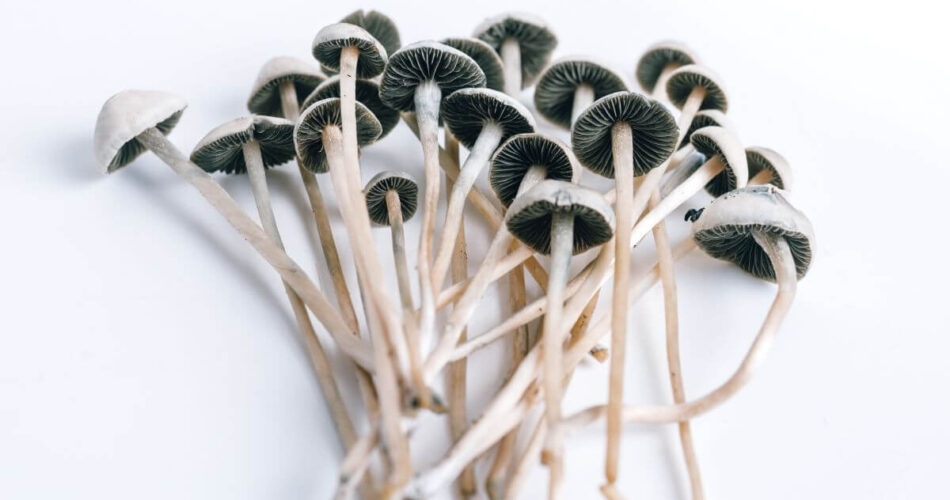Panaeolus olivaceus is a small brown mushroom that has psychoactive properties. Some people refer to it as the “false morel” because of its resemblance to the morel mushroom. Learn more about this species.
Although it is not as well known as other magic mushrooms, Panaeolus olivaceus does have some interesting effects. Read on to learn more about this intriguing little fungus!
Panaeolus Olivaceus – History
Panaeolus olivaceus is a species of fungi in the family Bolbitiaceae. This fascinating fungus was described and named by F.H. Møller in 1945. The specific epithet olivaceus refers to the olive-green color of the shroom.
P. olivaceus is widely distributed in temperate regions of the world, and can be found growing on dung, in pastures, and on decaying wood. This species is unrelated to the true olives (Olea europaea), which are members of the family Oleaceae.
Panaeolus Olivaceus Morphology and Identification
P. olivaceus is a small to medium-sized mushroom, measuring 2-5 cm in diameter and 5-15 cm in height. The cap is convex to slightly flattened, brown to olive brown in colour, with a margin that is initially wavy but gradually flattens out as it matures. The surface of the cap is smooth, sometimes with a few scattered scales. The gills are brown to dark brown in colour, and close together. It has black, slightly roughened spores, oval to elliptical in shape, and measure 9-11 x 5-6 micrometres.
Panaeolus Olivaceus – Habitat
The Panaeolus olivaceus is found in grasslands and meadows. This fungus prefers humid environments and often fruits after rainfall. It is considered to be one of the most widespread in its genus.
It is a saprobic fungus, meaning that it obtains nutrients from dead organic matter. This fungus can be found growing on cow dung, horse manure, and other decomposing plant matter. The P. olivaceus is a cosmopolitan species and can be found in temperate regions around the world. It is often found in Europe, North America and Australia.
Panaeolus Olivaceus – Similar Fungi
This fungus is not considered to be edible due to its small size and unappetizing appearance. However, some reports indicate that this mushroom can cause mild gastrointestinal upset if consumed. P. olivaceus is more commonly known as the “blackening pan” due to the blackening of its spores when they are mature. This fungus is sometimes confused with the Panaeolus cinctulus, which is also blackening and shares a similar habitat.
Is P. Olivaceus a Magic Mushroom?
P. Olivaceus is a psychoactive shroom that has been used for centuries by indigenous people in the Amazon rainforest. The active ingredient in P. Olivaceus is psilocybin, which is a psychedelic compound that can produce powerful hallucinations and altered states of consciousness. There are some suggestions that P. Olivaceus can be helpful in treating anxiety and depression, and it has also been consumed in religious ceremonies by indigenous people.
While there is no scientific evidence to support the claims that P. Olivaceus is helpful in any way, the anecdotal information from those who have used it suggests that it can be a powerful tool for healing and self-discovery.
Similar Posts:
- Panaeolus Tropicalis: Potent Tropical Mushrooms
- Panaeolus Fimicola: Uncommon Mushroom Species
- Panaeolus Cambodginiensis: Magic Mushrooms Species
- Psilocybe Baeocystis – Unusual Psilocybin Species. Identification, Potency & Characteristics
- Galerina Steglichii: A Very Rare and Mysterious Psilocybin Mushroom Found in a Greenhouse
- Gymnopilus Luteofolius – Spore Print, Description, Habitat, etc. Learn About This Unique Fungus
- Copelandia (Copelandia Cyanescens) Mushroom: A Comprehensive Overview




